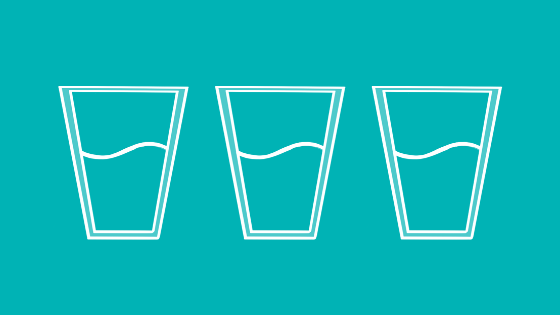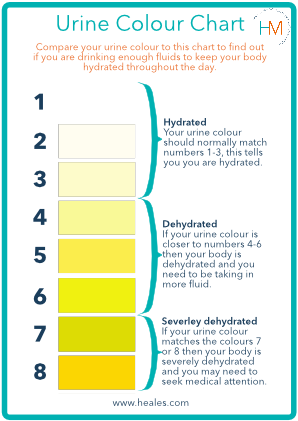The human body is made up of 50- 70% water. This water is lost throughout the day through perspiration, breathing, urination and defecation. Water has many functions within the body including regulating temperature, transportation of nutrients and compounds in blood, removing waste products through urination and aiding in joint lubrication and shock absorption. It is vital that we replace this water or our bodies will start to function less effectively.
Active people need to take in more water throughout their day as it is lost during exercise when you perspire/ sweat, the body’s cooling process.

Dehydration
Dehydration is the term for excessive loss of water from the body. A deficit of only 2% or more is considered to be dehydration. Many people suffer various signs of dehydration by not drinking enough fluid in their day.
Short term effects of dehydration include:
- Thirst
- Dry mouth, lips or eyes
- Dizziness
- Headaches
- Tiredness
- Lack of concentration
- Pain when urinating
If left untreated and more fluid is not taken in, dehydration can become severe. Severe dehydration is considered to be a medical emergency and requires medical attention as it can be life threatening.
Signs of severe dehydration include:
- Lethargy/ tiredness or confusion
- Not passing urine for eight hours
- Weak pulse
- Rapid pulse
- Fits/ seizures
- Low level of consciousness
How do you know if you are hydrated or dehydrated?
The simple action of checking the colour of your urine can give a clear indication of your hydration levels

How to stay hydrated
The recommendation is for adults to drink a minimum of 8 glasses of fluid (e.g. water, squash and fruit juice) every day. You should increase this intake of fluid if you are active or if the weather is particularly hot.






